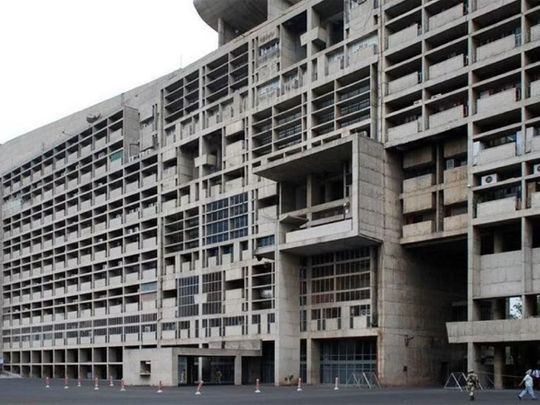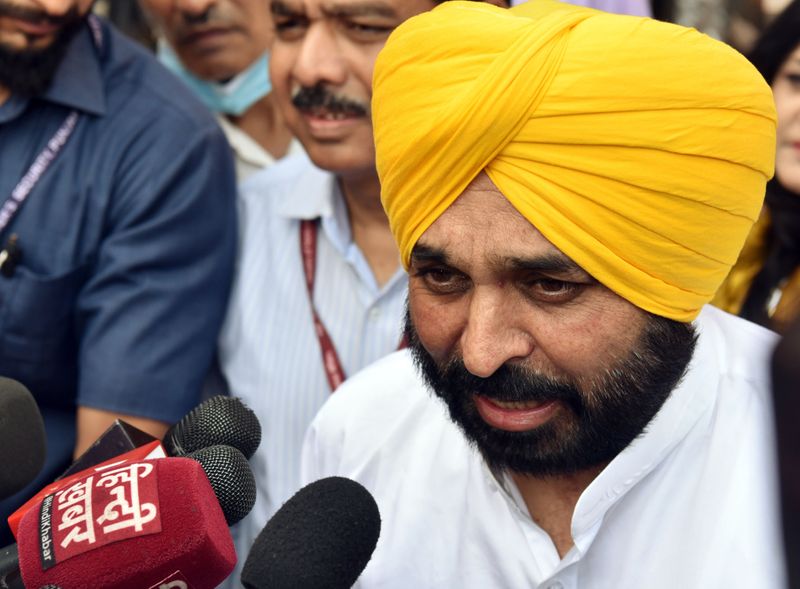
From May 2, government offices in the north Indian state of Punjab have been starting at 7:30 am, and closing doors at 2 pm, instead of the usual 9 am to 5 pm. There is no designated lunch break in between.
The Bhagwant Mann-led Aam Aadmi Party government has decided to change the timings till the monsoons arrive in July, with the aim of saving electricity. Social media memes express disgruntlement about the move, and there are problems aplenty with it. Yet, 10 days later, the bureaucracy seems to have accepted the change.
It’s an experiment the rest of India should watch keenly and consider emulating. Not just the government, urban society as a whole should consider the idea of starting the day early and not working after 2 pm.
One joke is that Bhagwant Mann must be missing his school days. Most schools in India start much before offices do, and end by lunch time. Parents wait for their children to finish school so that they, too, can get some extra sleep in the morning.

A new work culture
There are many good reasons — not just saving electricity — why urban India should think of working 7 am to 2 pm.
India is a hot country that is only getting hotter. It makes no sense to begin the day at 10 am or even 9 am. In much of urban India you see markets open as late as 11 am, because they are going to be open till as late as 11 pm. It’s a work culture that privileges evening over morning, night over day.
This work culture makes sure we are working all day. Survey after survey has shown Indians are among the most overworked people in the world, and no, this does not result in an increase in productivity.
In fact, India’s poor productivity growth rate is one of the hurdles it has to cross if it has to become a developed country.
Note that 7:30 am to 2 pm is only 6.5 hours, as opposed to the 8 hours in 9 to 5. We can try adopting a new work culture where by starting the day early and ending it early, working fast to finish work and going home to enjoy the evening. This could perhaps improve both productivity and quality of life.
Learning from rural India
We can’t be sure of the Punjab government’s idea that this will save electricity in the peak summer — because the employees may well run air-conditioners at home. But the other benefits are countless. Is it not a good idea if parents return home along with their children, and enjoy more quality time together?
So many women in India drop out of professional employment because they have to take care of children. But if children and parents return home at the same time, it increases the ability of mothers to have office jobs.
The 9-to-5 work culture in India, which often becomes 10 to 8, is an urban phenomenon. In the villages, people wake up with sunrise, going into the fields for farming or labour. They wind up the day with sunset, eating dinner and going to sleep earlier than urban India. The urban culture of starting the day late leaves people neither with much personal time in the morning nor in the evening.
Urban India has been going through a health crisis, with increasing incidence of diabetes, heart disease, sleep disorders and other ‘lifestyle diseases’.
Starting the day early and not working all day should help people focus on their health, exercise, and general well-being. By making people sleep earlier, it should help them stick to the circadian rhythm.
Healthy, wealthy and wise
Punjab has reported government employees coming late with the new timings, but when did government employees come on time anyway?
Government offices are known to be lethargic places — perhaps the image is an unfair stereotype. But shorter work hours, the incentive of having the afternoon and evening all to yourselves, should hopefully improve productivity.
In many government offices in Punjab, which deal directly with the public, officials have no work because the general public doesn’t like to wake up at 7:30. In some offices this has actually lowered productivity. Lawyers in consumer courts, for example, are quite disgruntled.
These issues will settle down, and hopefully the private sector too will consider starting their offices early. They will hopefully notice how starting government offices early has eased the peak hour traffic situation in Punjab’s towns and cities.
Climate change, health, traffic, electricity consumption, quality of life, labour productivity, women in the workforce — one can think of so many reasons why the rest of north India should emulate Bhagwant Mann’s idea.
Not just in the summer months, but perhaps in the brutally humid monsoon months too. As the old saying goes, early to bed, early to rise, makes you healthy, wealthy and wise.









